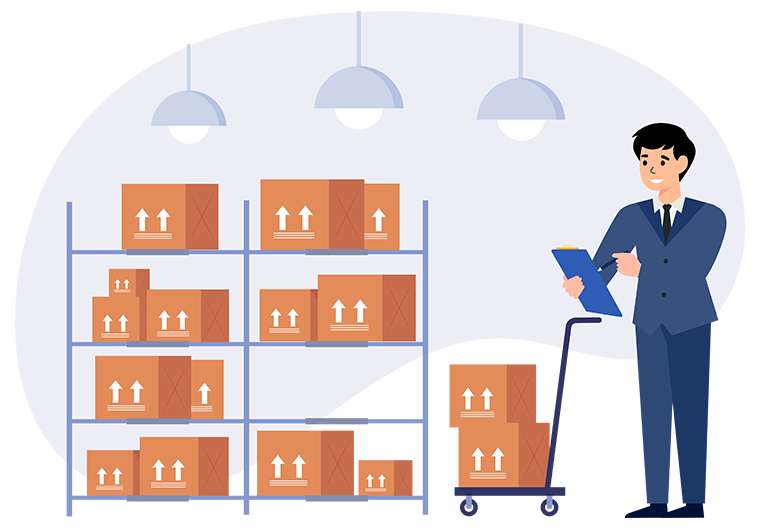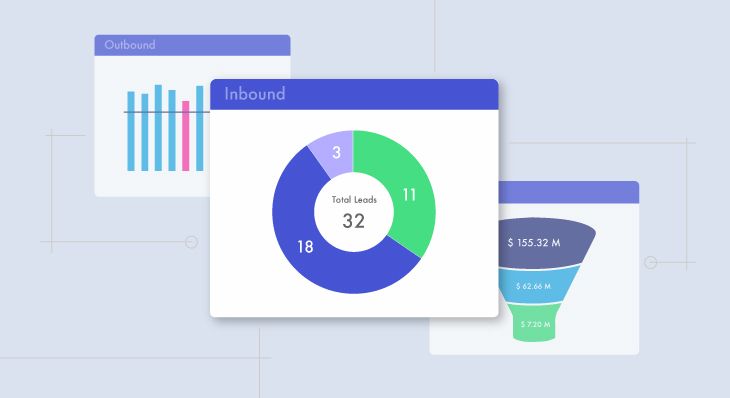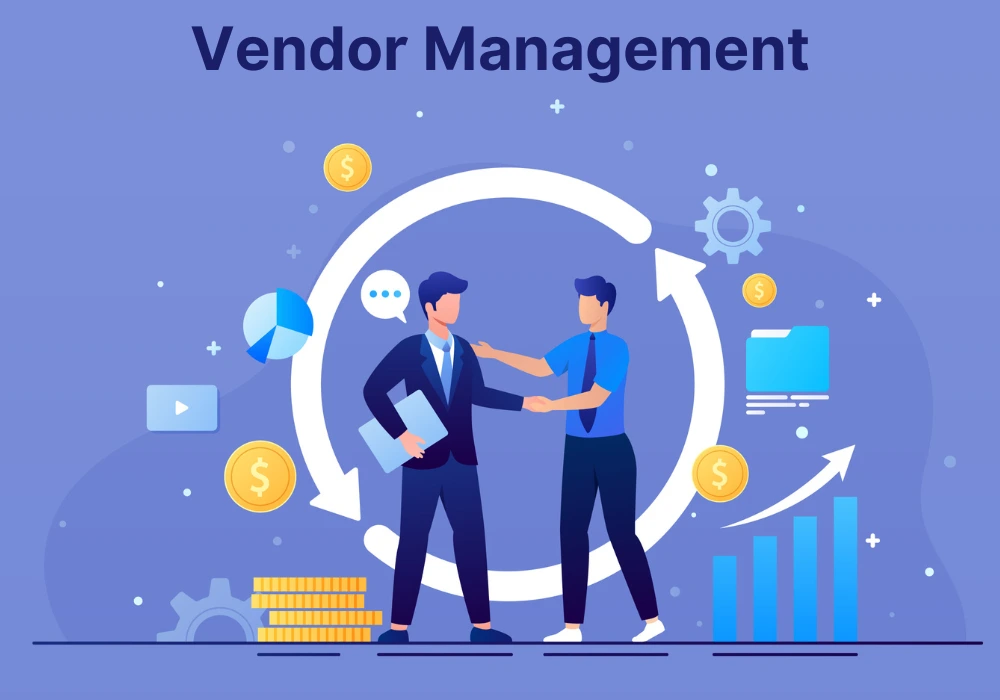What Do Ecommerce Managers Do
E-commerce managers ensure that websites operate smoothly and drive sales growth. They play a key role in every aspect, from website optimization to marketing management. They not only focus on user experience but also analyze customer data.

Have you ever enjoyed a smooth shopping experience while browsing your favorite online store? Behind that seamless transaction are those e-commerce managers–the masterminds– who make sure everything happens like a breeze, from your online presence to marketing and supply chain sourcing.
They’re the ones making sure the website looks great, products are easy to find, and the checkout process is effortless. From running online marketing campaigns to boosting visibility with SEO, they’ve got a hand in everything that drives sales. They also dive into customer data to figure out what’s working and where improvements can be made.
With an e-commerce solution provider like BuckyDrop, you get a significant advantage through access to a streamlined global supply chain and logistics and dropshipping solutions. This also helps businesses manage inventory, fulfill orders, and scale efficiently in a highly competitive marketplace.
So, here’s a detailed list of what lies in the E-commerce job descriptions. So, let's get started.
1. Managing the E-commerce Website
The first and foremost responsibility of an e-commerce manager is to guarantee that your online presence is up to the mark. That means they take charge of keeping each aspect of your website in the correct order. Whether it's speeding up the site, fixing glitches, or making sure the layout is easy to navigate.

So, from updating product listings to streamlining entire sourcing solutions, their goal is to make shopping as hassle-free as possible
In the B2B business context, this becomes a win-win factor. An easy-to-browse website not only helps clients place orders effortlessly but also helps build strong, professional relationships.
Plus, when your site runs flawlessly, it cuts down on errors and speeds up transactions, which means lower costs and fewer headaches for business partners.
2. Product and Inventory Management
E-commerce manager has a lot on their plates when it comes to product and inventory management. Imagine trying to keep track of all the products in a giant warehouse, knowing exactly how many you’ve and when you need to restock. That's basically their job!

They’re the ones verifying if the product descriptions are right, prices are correct, and/or whether there have been any new products introduced, etc. And in terms of inventory, they are the stockroom heroes, ensuring there's just enough of everything while not keeping too much on hand. Finding a compromise between stockouts and overpaying for products that might not sell is an art. Thus, their focus is to ensure that everything is well categorized, so customers don’t get into any issue in finding what they are looking for.
In the B2B space, accurately managed stock is so paramount. Adequate stock levels will likely result in a good client-supplier relationship because they’re well aware of how much you sold last week and how fast of a restock is needed in order to avoid being out of stock.
By handling inventory in this way, the trust between business clients is upheld since they can count on having the products they need when they need them. It minimizes delays that may occur and maintains the supply chain and logistics in good working order.
3. Digital Marketing Strategy
Being a digital expert, an E-commerce manager works as a creative strategist in driving online sales. They juggle a lot for their work –from crafting SEO campaigns that boost organic traffic to launching eye-catching Pay Per Click ads that grab attention fast.

They also make a lot of use of email marketing to keep the customers engaged and coming back for more. They analyze their data to figure out what works, and quickly adapt in order to ensure that all traffic entering their online store also ends up with loyal fans and repeat customers.
In the B2B arena, a good digital marketing strategy can make a world of difference in making your business succeed. Obviously. When E-commerce managers, in collaboration with Buckydrop, do marvelously well with their campaigns, they are likely to gather some of the best businesses–those who are really interested in what you offer.
This is more than just getting the one-time sale but about building relationships that actually sets the stage for future engagement. Put differently; good marketing is not just nice to have but absolutely vital for success in the tough world of B2B today!
4. Sales and Performance Analytics
Besides website and inventory handling, E-commerce managers work as the detectives of the digital world. By this, we mean they dive deep into the data to uncover the latest trends and insights, figure out which products are hot sellers, and identify where improvements can be made.

Fundamentally, Sales and Performance Analytics are an important part of what they do. By understanding how customers navigate a site, they can bring up smart solutions to enhance development, refine marketing strategy, or improve stock management while keeping the online store running like a dream.
For B2B particularly, this ability to make decisions around data is an absolute game-changer. With the utilization of analytics by e-commerce managers, e-businesses can focus on exactly what their business clientele wishes to have & change their offering according to their needs.
Not only does this keep customers satisfied but, it enables companies to scale up easily, adapt to changing markets, and ultimately grow. To put it simply, this data-driven decision-making is essential to succeed in the competitive B2B environment.
5. Logistics and Fulfillment
While the front end of e-commerce focuses on customer experience, there’s also a crucial back-of-house operation that makes sure all orders are picked, packed, shipped and delivered on time. Here’s where the e-commerce manager has a role in global logistics services.

Basically, the E-commerce manager takes charge of the entire order-to-cash cycle– from the initial order to the final delivery–so a seamless experience can be provided to customers and businesses. Thus, This hands-on approach helps them keep customers in the loop with timely updates and ensures everything is transparent throughout the shipping process.
In the B2B sector, where orders can be larger and involve more steps, global logistics and supply chains are even more crucial. If you’re partnering with Dropshipping platforms like Buckydrop, this becomes even more simpler.
How Does Dropshipping Work? Businesses do not keep any inventory in stock themselves, instead, they do partnership with dropshipping suppliers to house and ship products directly to customers. This push the overhead costs down to a much lower level and make the logistics process easy.
6. Managing Vendor Relationships
For businesses to operate in the e-commerce world, there’s a need to have a good network of vendors on board. Because a solid vendor base makes sure that online stores have access to quality products, reliable shipping, and efficient services.

And for an online store to set its standard, keeping a good check on vendors' contracts, payment getaways, and third-party integrations becomes the responsibility of E-commerce managers.
From a B2B standpoint, establishing consistent vendor relationships is crucial, specifically when filling huge bulk orders. E-commerce managers look for two things in a supplier agent: the ability to scale (even past your demand expectations), and reliable production.
This also means e-commerce businesses need to have solid relationships with vendors to provide seamless service to business clients, ensuring that orders get processed efficiently and any hiccups are sorted out quickly. In a competitive landscape, these solid relationships give businesses a real edge, helping them meet client needs and ultimately grow effectively.
E-commerce managers can use this network of relationships with their vendors to:
Build Better Terms—When you’ve got a strong relationship, they may offer favorable terms like decreased pricing or extended payment terms.
Ensure A Reliable Supply Chain— because reliable supply chain sourcing is the core of an effective market, you need to fulfill orders once they occur.
Enhanced customer satisfaction— If vendors offer exceptional services, this results in an improved customer experience.
7. Budgeting and Financial Oversight
While the day-to-day operations of an e-commerce business might seem all about manufacturing sourcing, marketing, and customer service, it really all comes down to having a solid financial foundation. That’s where the e-commerce manager steps in with their expertise in budgeting and financial oversight.
They really do strict budgeting, breaking down their operating expenses line by line to see where cost efficiencies are possible. With the help of their analysis of expenses and process optimization, e-commerce managers also help eliminate unnecessary resources involved in the work of a B2B marketplace — which leads to lower costs and increased profitability on your part.
Even more so in the B2B space, this cost management matters the most. The lower the expenses E-commerce managers keep while giving value, affects pricing strategies for B2B clients.
Competitive pricing is the must-have for customers to stay in, and by reducing costs, managers can offer more attractive prices without cutting into their margins.. It helps build a stronger relationship with the client and get placed ahead in a competitive landscape.
Conclusion
So, the role and key responsibilities of e-commerce managers range from being multi-faceted to critical in running an online business successfully. Their vast experience makes it easier to tackle the complexities of e-commerce, ranging from budgeting and financial oversight, to managing vendor relationships and optimizing operational costs. They make companies competitive by increasing efficiencies, driving profitability and creating great client relationships.
If you are a B2B business and want to improve your e-commerce and supply chain sourcing services, you may opt for BuckyDrop. It is structured in a way to help e-commerce managers with better operational efficiency, global logistics and supply chain and thereby increase profits.
Find out how BuckyDrop can take you to the next level and bring some success stories to your e-commerce journey.



